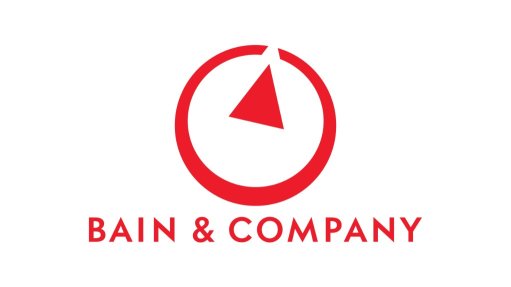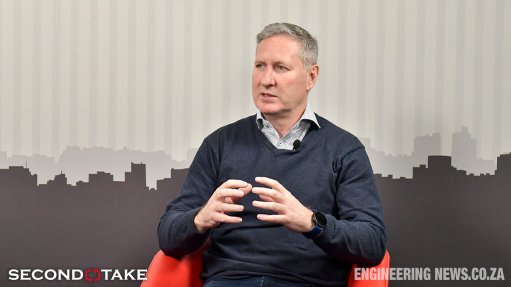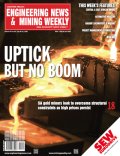Reducing deaths from bacterial and fungal infections in people living with HIV
This article has been supplied.
Professor Nelesh Govender’s research topic is Refining Interventions to Reduce AIDS Mortality from Bacterial and Fungal Infections in Africa.
According to Govender, at least one-third of the 630,000 global AIDS-related deaths are due to bacterial and fungal infections, which include cryptococcal meningitis, Pneumocystis jirovecii pneumonia (PCP), pneumococcal and Salmonella infections and histoplasmosis. “From autopsy studies, we know that people with AIDS often die with multiple co-infections,” he says.
Meanwhile, some AIDS-related infections are unique to southern Africa. “We first described a fungus – Emergomyces africanus – causing a life-threatening infection in people with AIDS in 2013. Histoplasmosis, although found worldwide, is underdiagnosed in Africa because there is no access to simple accurate diagnostic tests.”
Histoplasmosis can be also mistaken for tuberculosis (TB). Opportunistic infections, such as PCP, pneumococcal and non-typhoidal Salmonella infections, occur everywhere in the world but are much more common in low-to-middle-income countries with a high prevalence of AIDS.
Govender says, “We used to see AIDS-related infections in people who were newly diagnosed with HIV. But we are increasingly seeing these infections in people who were previously diagnosed with HIV and started antiretroviral therapy [ART] but who then disengaged from care and stopped their ART.”
The Professorship award develops early-career researchers
Researcher-recipients of the NIHR Global Research Professorship scheme receive five-year awards of up to £2 million (±R46 million). This includes funding for early-career research and support posts. Researchers are also able to access a leadership and development programme.
Govender will collaborate with colleagues and partners in South Africa, Tanzania, the Democratic Republic of Congo, Mozambique, and Guinea.
“With the £2 million NIHR award, I can work full time on this research for five years. A team of postdoctoral and PhD students will also boost the Wits Mycology research division’s work,” says Govender.
Entrenched in the Global South
His NIHR Research Professorship will be led from the Faculty of Health Sciences at Wits and his research division at Wits Health Consortium. It will be conducted in partnership with South Africa’s National Institute for Communicable Diseases.
Govender will leverage his national and international networks, including the NIHR Global Health Research Group on HIV-associated Fungal Infections (IMPRINT), the EFFECT clinical trial, and GERMS-SA.
The work will be divided into three broad areas:
A 3-tiered cohort of adults with advanced HIV disease will be set up in South Africa to document the incidence, causes and outcomes of serious bacterial and fungal infections compared to tuberculosis (ADVANCE GERMS-SA).
Patients with HIV will participate for researchers to understand their lived experience of being diagnosed and treated for serious bacterial and fungal infections and so that researchers can help answer questions about the acceptability and feasibility of a combination antifungal treatment regimen for cryptococcal disease being tested in the EFFECT clinical trial in South Africa and Tanzania.
New laboratory tests, which detect traces of bacterial and fungal pathogens in body fluids, will be applied to cohort study patient samples and evaluated as diagnostic tools for serious infections among people living with advanced HIV disease
Throughout the project, the IMPRINT Community Advisory Board will oversee, guide and help to engage communities of people living with HIV in the research.
Comments
Press Office
Announcements
What's On
Subscribe to improve your user experience...
Option 1 (equivalent of R125 a month):
Receive a weekly copy of Creamer Media's Engineering News & Mining Weekly magazine
(print copy for those in South Africa and e-magazine for those outside of South Africa)
Receive daily email newsletters
Access to full search results
Access archive of magazine back copies
Access to Projects in Progress
Access to ONE Research Report of your choice in PDF format
Option 2 (equivalent of R375 a month):
All benefits from Option 1
PLUS
Access to Creamer Media's Research Channel Africa for ALL Research Reports, in PDF format, on various industrial and mining sectors
including Electricity; Water; Energy Transition; Hydrogen; Roads, Rail and Ports; Coal; Gold; Platinum; Battery Metals; etc.
Already a subscriber?
Forgotten your password?
Receive weekly copy of Creamer Media's Engineering News & Mining Weekly magazine (print copy for those in South Africa and e-magazine for those outside of South Africa)
➕
Recieve daily email newsletters
➕
Access to full search results
➕
Access archive of magazine back copies
➕
Access to Projects in Progress
➕
Access to ONE Research Report of your choice in PDF format
RESEARCH CHANNEL AFRICA
R4500 (equivalent of R375 a month)
SUBSCRIBEAll benefits from Option 1
➕
Access to Creamer Media's Research Channel Africa for ALL Research Reports on various industrial and mining sectors, in PDF format, including on:
Electricity
➕
Water
➕
Energy Transition
➕
Hydrogen
➕
Roads, Rail and Ports
➕
Coal
➕
Gold
➕
Platinum
➕
Battery Metals
➕
etc.
Receive all benefits from Option 1 or Option 2 delivered to numerous people at your company
➕
Multiple User names and Passwords for simultaneous log-ins
➕
Intranet integration access to all in your organisation


















